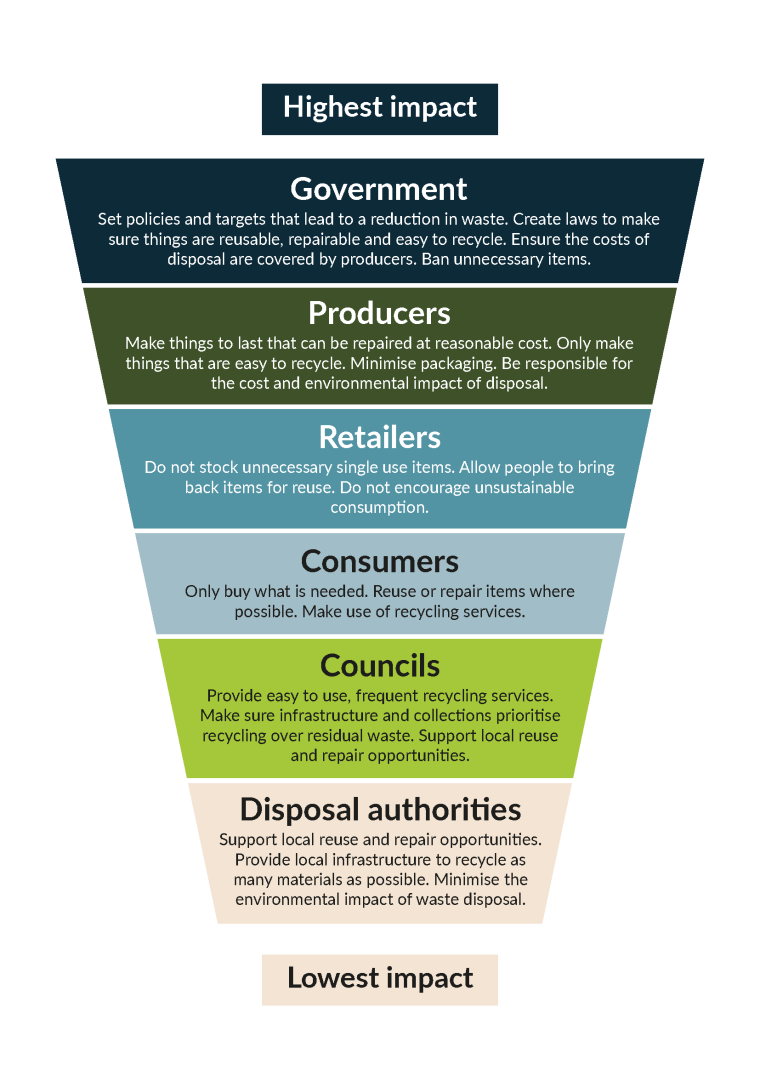North London Joint Waste Strategy 2025-2040
NLWA and the north London boroughs have produced a North London Joint Waste Strategy 2025-2040. The strategy has a bold, environmentally friendly vision, which will govern how we manage waste through to 2040. It includes ambitious targets to reduce the amount of waste that needs to be disposed of, increase the amount of recycling, and use the most circular and climate-friendly means of disposal possible.
Learn more about the North London Joint Waste Strategy 2025-2040.
Following the principles of the waste hierarchy, the strategy has a strong emphasis on waste reduction. It also makes it clear that there is a hierarchy of influence, which starts with the government and includes manufacturers and retailers as well as individuals, councils and disposal authorities.

When it comes to waste reduction and the circular economy, different groups or organisations have different levels of influence. We list these below in order of highest impact to lowest:
- Government: Set policies and targets that lead to a reduction in waste. Create laws to make sure things are reusable, repairable and easy to recycle. Ensure the costs of disposal are covered by producers. Ban unnecessary items.
- Producers: Set policies and targets that lead to a reduction in waste. Create laws to make sure things are reusable, repairable and easy to recycle. Ensure the costs of disposal are covered by producers. Ban unnecessary items.
- Retailers: Do not stock unnecessary single use items. Allow people to bring back items for reuse. Do not encourage unsustainable consumption.
- Consumers: Only buy what is needed. Reuse or repair items where possible. Make use of recycling services.
- Councils: Provide easy to use, frequent recycling services. Make sure infrastructure and collections prioritise recycling over residual waste. Support local reuse and repair opportunities.
- Disposal authorities: Support local reuse and repair opportunities. Provide local infrastructure to recycle as many materials as possible. Minimise the environmental impact of waste disposal.
Waste Prevention Plan
For over ten years, NLWA has delivered an ambitious programme of waste prevention projects, schemes and campaigns. Read about the current Waste Prevention Plan covering 2022-25 on our page, Preserving Resources, Driving Change. It includes waste prevention activity and communications work delivered by NLWA to reduce the level of recycling contamination and increase recycling, supporting on-the-ground activity delivered by the constituent boroughs. The Plan delivers some of the activities included within borough Reduction and Recycling Plans (RRPs) required by the Mayor of the London. You can also see our previous plan, Residual Waste Reduction Plan 2021-22.

